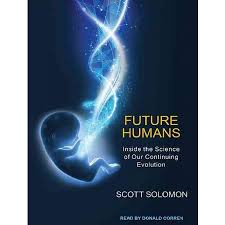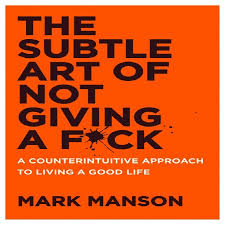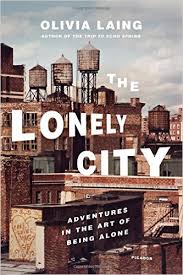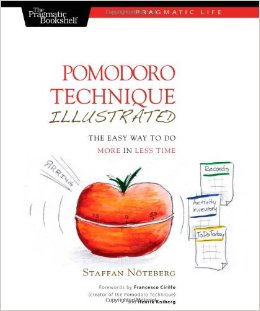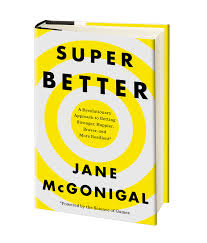It’s almost time for that year-end round-up purge which begins at this time of year. We’re going to stick to our monthly filter of books that moved us, helped us, changed us.
Future Humans: Inside the Science of Our Continuing Evolution by Scott Solomon
Are humans still subject to the forces of evolution? An evolutionary biologist provides surprising insights into the future of Homo sapiens In this intriguing book, evolutionary biologist Scott Solomon draws on the explosion of discoveries in recent years to examine the future evolution of our species. Combining knowledge of our past with current trends, Solomon offers convincing evidence that evolutionary forces still affect us today. But how will modernization-including longer lifespans, changing diets, global travel, and widespread use of medicine and contraceptives-affect our evolutionary future? Solomon presents an entertaining and accessible review of the latest research on human evolution in modern times, drawing on fields from genomics to medicine and the study of our microbiome. Surprising insights, on topics ranging from the rise of online dating and Cesarean sections to the spread of diseases such as HIV and Ebola, suggest that we are entering a new phase in human evolutionary history-one that makes the future less predictable and more interesting than ever before.
The Subtle Art of Not Giving a F*ck: A Counterintuitive Approach to Living a Good Life by Mark Manson
In this generation-defining self-help guide, a superstar blogger cuts through the crap to show us how to stop trying to be “positive” all the time so that we can truly become better, happier people.
For decades, we’ve been told that positive thinking is the key to a happy, rich life. “F**k positivity,” Mark Manson says. “Let’s be honest, shit is f**ked and we have to live with it.” In his wildly popular Internet blog, Manson doesn’t sugarcoat or equivocate. He tells it like it is—a dose of raw, refreshing, honest truth that is sorely lacking today. The Subtle Art of Not Giving a F**k is his antidote to the coddling, let’s-all-feel-good mindset that has infected modern society and spoiled a generation, rewarding them with gold medals just for showing up.
Manson makes the argument, backed both by academic research and well-timed poop jokes, that improving our lives hinges not on our ability to turn lemons into lemonade, but on learning to stomach lemons better. Human beings are flawed and limited—”not everybody can be extraordinary, there are winners and losers in society, and some of it is not fair or your fault.” Manson advises us to get to know our limitations and accept them. Once we embrace our fears, faults, and uncertainties, once we stop running and avoiding and start confronting painful truths, we can begin to find the courage, perseverance, honesty, responsibility, curiosity, and forgiveness we seek.
There are only so many things we can give a f**k about so we need to figure out which ones really matter, Manson makes clear. While money is nice, caring about what you do with your life is better, because true wealth is about experience. A much-needed grab-you-by-the-shoulders-and-look-you-in-the-eye moment of real-talk, filled with entertaining stories and profane, ruthless humor, The Subtle Art of Not Giving a F**k is a refreshing slap for a generation to help them lead contented, grounded lives.
The Lonely City: Adventures in the Art of Being Alone by Olivia Laing
Named a best book of the year by NPR, Newsweek, Slate, Pop Sugar, Marie Claire, Elle, and Publisher’s Weekly. A dazzling work of memoir, biography and cultural criticism on the subject of loneliness, told through the lives of six iconic artists, by the acclaimed author of The Trip to Echo Spring.
How to break free of that prison of loneliness and rein-habit the space of trust and love is what Olivia Laing explores in The Lonely City: Adventures in the Art of Being Alone — an extraordinary more-than-memoir; a sort of memoir-plus-plus, partway between Helen MacDonald’s H Is for Hawk and the diary of Virginia Woolf; a lyrical account of wading through a period of self-expatriation, both physical and psychological, in which Laing paints an intimate portrait of loneliness as “a populated place: a city in itself.”
Pomodoro Technique Illustrated (Pragmatic Life) by Staffan Noteberg
Do you ever look at the clock and wonder where the day went? You spent all this time at work and didn’t come close to getting everything done. Tomorrow try something new. Use the Pomodoro Technique to work in focused sprints throughout the day. In Pomodoro Technique Illustrated, Staffan N teberg shows you how to organize your work to accomplish more in less time. There’s no need for expensive software or fancy planners. You can get started with nothing more than a piece of paper, a pencil, and a kitchen timer. The Pomodoro Technique puts you back in charge of your day. You’ll apply successful techniques from software engineering to identify what you should be doing today and to help you achieve your goals. Your mind won’t wander when it is fully engaged in short bursts of focused activity.
Super Better by Jane McGonigal
In 2009, internationally renowned game designer Jane McGonigal suffered a severe concussion. Unable to think clearly or work or even get out of bed, she became anxious and depressed, even suicidal. But rather than let herself sink further, she decided to get better by doing what she does best: she turned her recovery process into a resilience-building game. What started as a simple motivational exercise quickly became a set of rules for “post-traumatic growth” that she shared on her blog. These rules led to a digital game and a major research study with the National Institutes of Health. Today nearly half a million people have played SuperBetter to get stronger, happier, and healthier.
But the life-changing ideas behind SuperBetter are much bigger than just one game. In this book, McGonigal reveals a decade’s worth of scientific research into the ways all games—including videogames, sports, and puzzles—change how we respond to stress, challenge, and pain. She explains how we can cultivate new powers of recovery and resilience in everyday life simply by adopting a more “gameful” mind-set. Being gameful means bringing the same psychological strengths we naturally display when we play games—such as optimism, creativity, courage, and determination—to real-world goals.
Drawing on hundreds of studies, McGonigal shows that getting superbetter is as simple as tapping into the three core psychological strengths that games help you build:
• Your ability to control your attention, and therefore your thoughts and feelings
• Your power to turn anyone into a potential ally, and to strengthen your existing relationships
• Your natural capacity to motivate yourself and super-charge your heroic qualities, like willpower, compassion, and determination
SuperBetter contains nearly 100 playful challenges anyone can undertake in order to build these gameful strengths. It includes stories and data from people who have used the SuperBetter method to get stronger in the face of illness, injury, and other major setbacks, as well as to achieve goals like losing weight, running a marathon, and finding a new job.
As inspiring as it is down to earth, and grounded in rigorous research, SuperBetter is a proven game plan for a better life. You’ll never say that something is “just a game” again.
Click Essentials Reading Lists for more fascinating reads.


